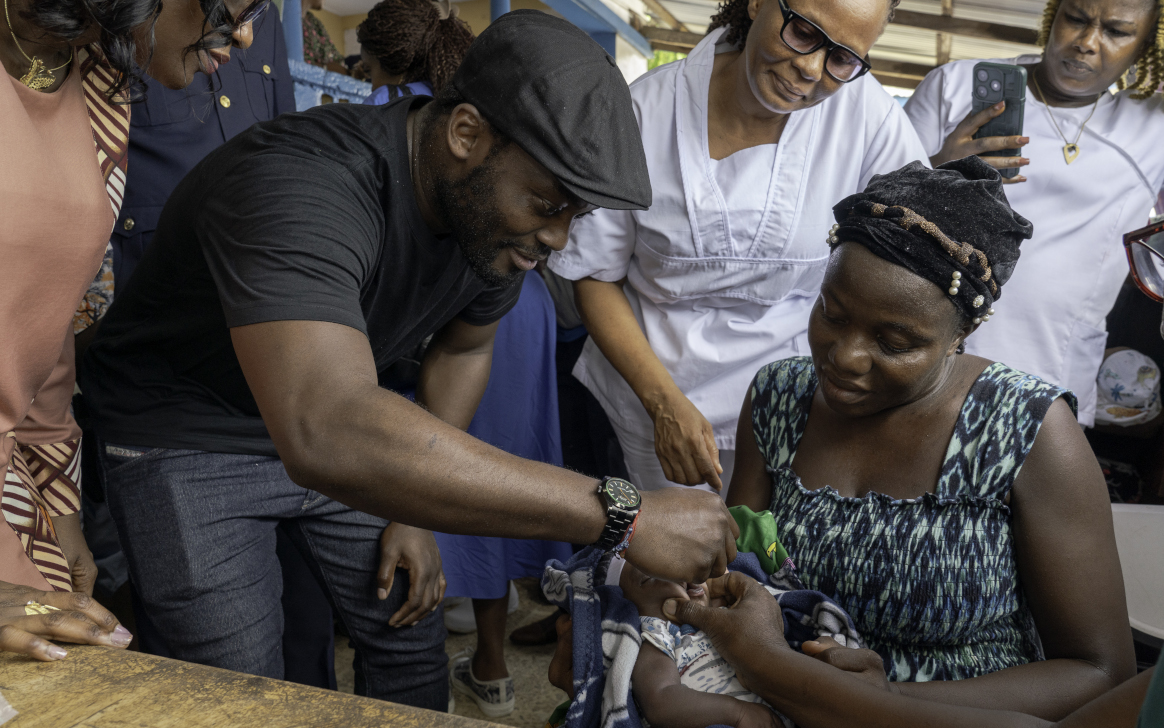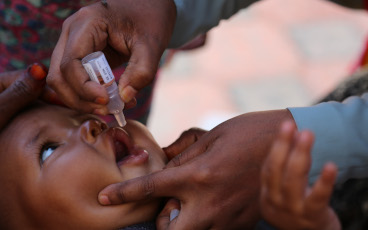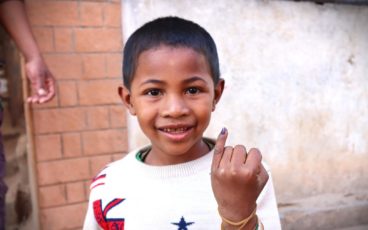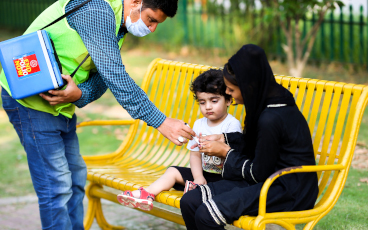Polio outbreak in Ukraine closed
A success story for public health despite extreme challenges of war
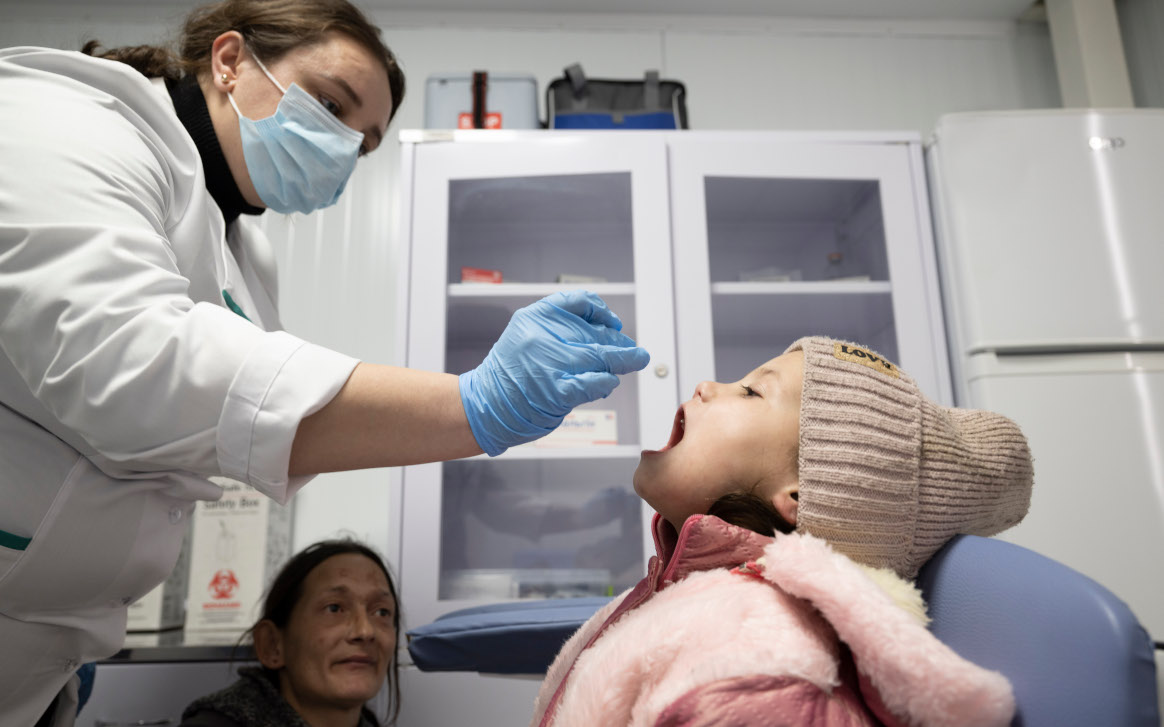
WHO/Europe has declared an outbreak of poliovirus in Ukraine, detected in October 2021, officially closed. The European Regional Commission for the Certification of Poliomyelitis Eradication endorsed the closure of the outbreak during its annual meeting on 8 September 2023. The country has achieved this milestone – stopping transmission of the virus that threatened the lives and futures of its children and preventing spread to other countries – in the face of the ongoing war.
The comprehensive outbreak response, initiated by the Ministry of Health of Ukraine in December 2021, faced multiple challenges since the end of February 2022, including massive population displacement, destruction of health-care infrastructure and disruption of logistical routes for medical product deliveries.
“Stopping the spread of poliovirus in the midst of a devastating war is a major achievement and a clear demonstration of the highest level of political commitment of the Government of Ukraine to the welfare of its population,” said Dr Hans Henri P. Kluge, WHO Regional Director for Europe.
“In the face of unprecedented challenges, the necessary steps taken by the Ministry of Health of Ukraine to prevent the spread of poliovirus within and beyond the borders of Ukraine are immensely commendable.”
The decision to close the outbreak was based on:
- the recommendations of a poliovirus outbreak response assessment (OBRA) conducted by Global Polio Eradication Initiative (GPEI) partners, including WHO, in May 2023;
- additional documentation provided by Ukraine in support of the ongoing surveillance, immunization and communication efforts since May; and
- a comprehensive review of poliovirus surveillance and vaccination performance in the countries hosting the majority of the Ukrainian refugee population.
The outbreak was first detected in a young child in Ukraine in October 2021, following the importation of a poliovirus that had emerged in Pakistan and was previously detected in Tajikistan in 2021. A second child became paralysed in December 2021, and an additional 19 close contacts tested positive without developing symptoms.
“The Ministry of Health of Ukraine declared importation of this poliovirus a local public health emergency, and acted swiftly since its detection in close coordination with the global public health community,” said Dr Viktor Liashko, Minister of Health of Ukraine.
Dr Liashko continued, “The outbreak is now closed, but our work to prevent polio and other vaccine-preventable diseases in Ukraine continues despite all obstacles. As long as polio remains a threat globally, Ukraine will remain vulnerable. The Ministry of Health is committed to strengthening vaccine-preventable disease surveillance and working to achieve and sustain high routine immunization coverage nationwide to protect every child.”
What does it take to stop a polio outbreak?
In October 2021 the detection of poliovirus in Ukraine triggered the declaration of a public health emergency in affected oblasts, the creation of a response working group with technical support from GPEI and WHO specialists, and an immediate epidemiological investigation including contact tracing and environmental sampling at a summer camp, school and residences where the virus had been initially detected.
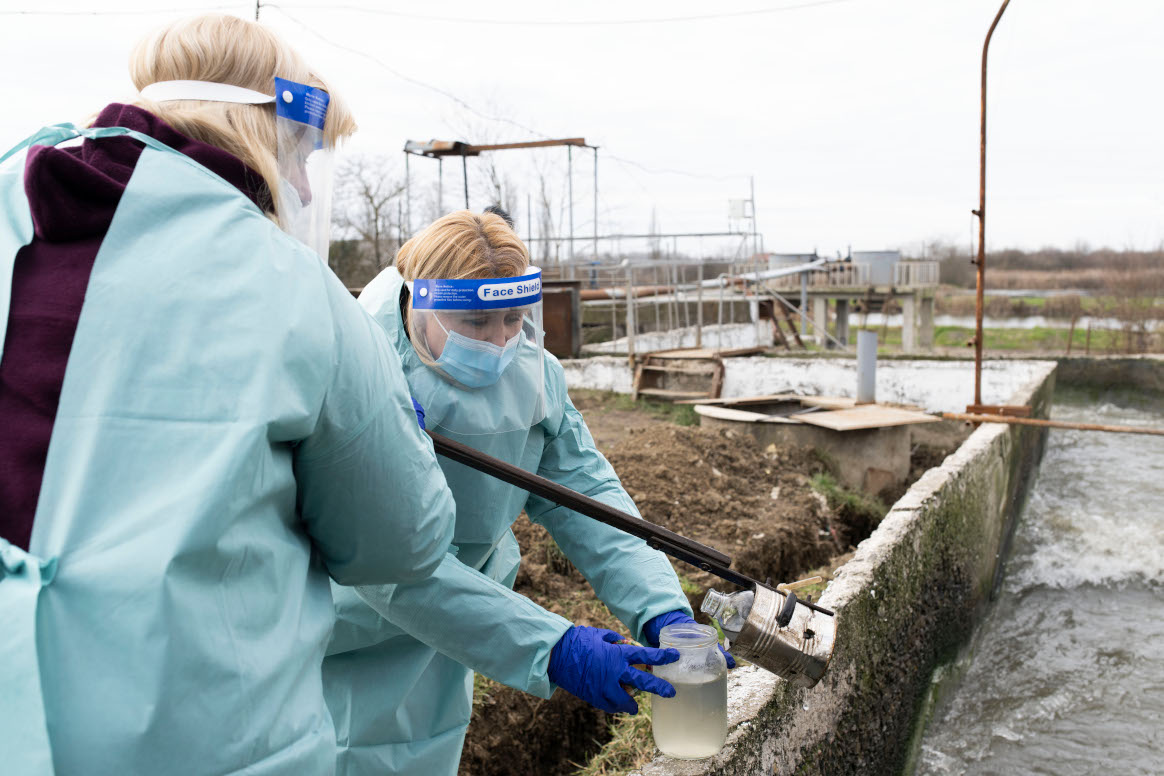
On 30 December 2021 the Ministry of Health approved an action plan in response to the outbreak that included, among other initiatives, an accelerated immunization catch-up campaign for children aged 6 months to 6 years who had not received the required doses through routine immunization.
The campaign began in mid-February 2022, but its scale and pace were significantly affected by the war in Ukraine. GPEI partners including WHO provided technical and operational support tailored to the context to build capacity and strengthen routine immunization services, disease surveillance, communication and transportation of samples to reference laboratories abroad.
Dr Jarno Habicht, WHO Representative in Ukraine, coordinated the WHO response within the country. “WHO and GPEI partners have been on the ground from day one, supporting Ukraine’s health authorities, medical and public-health professionals, laboratory staff, and communities to keep this virus from spreading,” he explained. “The excellent collaboration and perseverance of the local and international teams to protect children in the most difficult of circumstances has been truly inspiring.”
Despite the many challenges in implementing the national action plan for the outbreak response, no new detections of poliovirus were identified after December 2021. The OBRA conducted in May 2023 assessed the critical components of the outbreak response, such as the quality of surveillance (and thereby the risk of undetected poliovirus transmission), planning and coordination, the vaccination campaign, routine immunization performance, communication, and vaccine management. Based on the field assessment and review of the documentation, the OBRA concluded that poliovirus was no longer circulating in Ukraine.
The OBRA in Ukraine was followed by a comprehensive review of actions taken by Bulgaria, Czechia, Hungary, Poland, the Republic of Moldova, Romania and Slovakia. This was coordinated by WHO/Europe with financial support from the United States Agency for International Development (USAID).
The review assessed the actions to expand capacities to detect the virus, identify gaps in vaccination coverage and increase coverage of the local populations hosting Ukrainian refugees, and offer vaccination to refugees entering from Ukraine. This review, along with the additional information provided by Ukraine on actions implemented during the months following the OBRA, enabled WHO/Europe to declare the outbreak officially closed.
Mr Robb Butler, Director of the Division of Communicable Diseases, Environment and Health at WHO/Europe, stated, “Ukraine has been steadfast in recent years in its efforts to achieve and sustain high routine vaccination coverage, and within the realm of the European Immunization Agenda 2030, WHO/Europe will continue to support health authorities to prevent further outbreaks of vaccine-preventable diseases including polio, measles, diphtheria and many more.”
Mr Butler concluded, “Tremendous credit goes to the health professionals and parents who continue to make every effort to vaccinate children on schedule to protect them from the threat of polio and other diseases, even while navigating the daily realities and dangers of war.”




